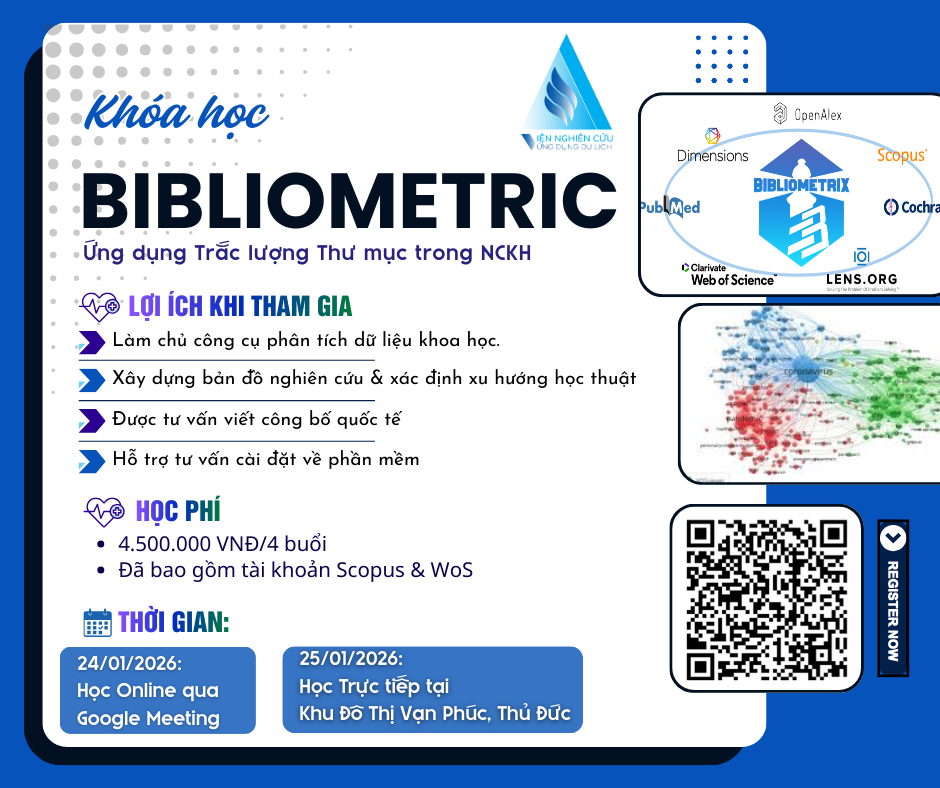This post is also available in:
Tiếng Việt (Vietnamese)
Hostelling International (HI) is currently the world’s sixth-largest accommodation provider, operating nearly 4,000 youth hostels across 88 countries and serving more than 3.5 million members. Since its founding in 1932, HI has positioned itself not merely as an accommodation provider but as a nonprofit organization with a mission grounded in education, intercultural exchange, and community benefit.
In the context of a rapidly transforming global tourism industry, HI has emerged as a model for integrating sustainability into all aspects of its operations, aligning closely with the United Nations Sustainable Development Goals (SDGs). In a recent webinar, Ms. Breanna Lopez—HI’s expert on health programs and sustainability standards—shared valuable insights into these efforts.
A Changing Tourism Landscape: Beyond Accommodation
According to Lopez, contemporary tourism has transcended traditional market segmentation. Today, travelers across income levels seek purposeful and meaningful experiences, rather than simply a bed for the night. HI, therefore, positions itself as a provider of experiences, where the hostel bed is only a small part of a broader journey.
With globalization fostering unprecedented connectivity among destinations, multilateral cooperation has become essential to mitigate the risks of “overtourism.” At the same time, the rise of artificial intelligence (AI) is emerging as a game-changer—offering both opportunities and challenges—requiring careful consideration of its impact on communities and destinations. Above all, sustainability has become an indispensable cornerstone of tourism: without environmental and social responsibility, the sector cannot endure in the long run.
Historical Mission and Sustainable Vision
Since 1932, HI has articulated a forward-looking mission: to promote education, protect the environment, and enhance intercultural understanding. The organization firmly believes that cultural exchange is one of the most effective means of preventing conflict and fostering peace. To this end, HI hostels are designed with communal spaces that encourage interaction and connection among travelers.
Over nearly a century of operation, HI has hosted more than 1.8 billion overnight stays. Functioning as a member-based organization, HI maintains a global presence, with particular strength in the Asia-Pacific and the Americas, though its presence in Africa remains limited due to political challenges.
Mainstreaming the SDGs into Operations
Following the adoption of the 17 SDGs by the United Nations in 2015, HI has embraced them as guiding principles for its strategic development. The organization pays particular attention to Goal 16 (Peace, Justice and Strong Institutions) and Goal 17 (Partnerships for the Goals). As Lopez emphasized, without peace, achieving other ecological and social objectives would be exceedingly difficult; partnerships, therefore, are key to systemic change.
To operationalize this vision, HI has implemented three core priorities:
-
Social: Sustaining its educational and intercultural programs.
-
Environmental: Moving toward a carbon-neutral hostel network.
-
Economic: Ensuring financial sustainability to reinvest in its mission.
HI’s Sustainability Policy, adopted in 2010, is aligned with the Global Sustainable Tourism Council (GSTC) criteria. Furthermore, HI applies a framework encompassing 10 thematic areas across the three sustainability pillars—social, environmental, and economic—while employing regular audits and Key Performance Indicators (KPIs) to monitor its global impact (e.g., CO₂ emissions, energy and water consumption, community engagement, and volunteer hours).

Practical Initiatives
-
Global Initiatives:
-
Sustainability Fund: In partnership with MyClimate, HI enables guests to offset CO₂ emissions from their stays, supporting 19 global projects and reducing approximately 7,000 tons of CO₂ annually.
-
Peace Postcard Party: Held annually on September 21, the International Day of Peace, this initiative invites travelers to send peace messages to the United Nations, reflecting on transformative intercultural experiences.
-
-
Local Initiatives
-
Bolivia: Vision-care program providing rural communities with access to free eyeglasses.
-
Luxembourg: Rooftop beekeeping projects to educate school groups about biodiversity and conservation.
-
Colombia: Salsa classes designed to connect travelers with local culture through music and dance.
-
Challenges and Collaborations
Despite long-standing sustainability efforts, HI faces a major challenge in effectively communicating these initiatives to international travelers. Another pressing issue is competition with major Online Travel Agencies (OTAs) such as Booking.com and Expedia. HI spends millions of euros annually on commission fees that could otherwise be reinvested in its mission.
To overcome these challenges, HI fosters collaborations with governments, the United Nations, UNESCO, UNWTO, private-sector organizations, and external hostel networks. It also actively encourages direct bookings via its official website to ensure that resources are directed toward sustainability goals.
Conclusion
Hostelling International demonstrates that tourism can act as a powerful force for positive change. Anchored in its historic mission of education, peace, and intercultural exchange, and guided by a systematic integration of the SDGs, HI shows that hostelling is far more than accommodation provision. Through innovative initiatives, rigorous monitoring, and global as well as local partnerships, HI continues to pioneer sustainable, responsible, and peace-oriented tourism worldwide.









